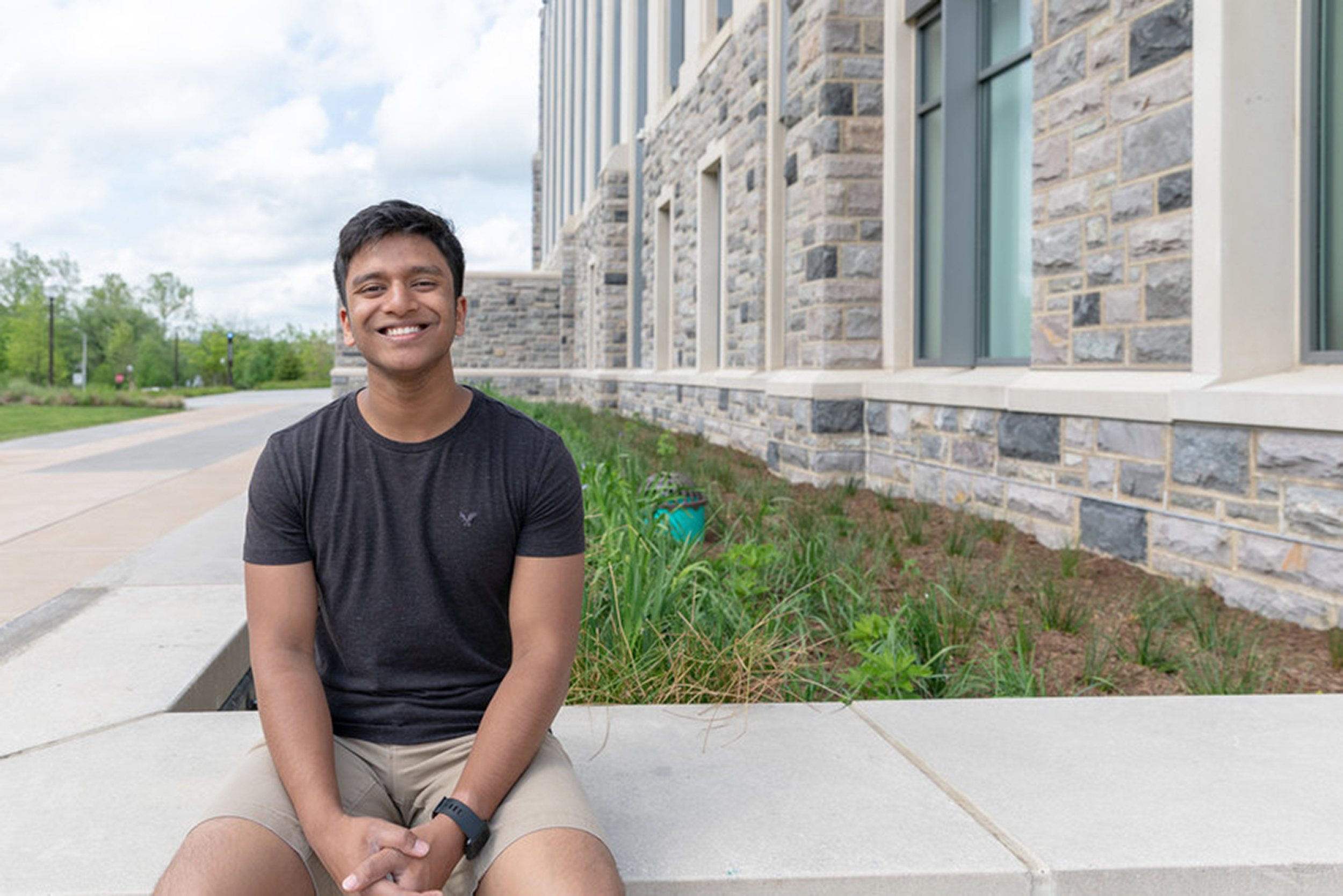by Grace Baggett
Saket Bikmal, a rising sophomore studying computational neuroscience, is living a life focused on others.
Inspired by his younger brother, Himal Bikmal, who was diagnosed with low-functioning autism at an early age, and the corresponding challenges his family faced trying to secure treatments and needed accommodations, Bikmal has developed a commitment to helping individuals affected by the disability.
Although Himal Bikmal cannot do many things for himself, he can paint. His art led Saket Bikmal and their father, Harish Bikmal, to co-found Zenaviv, a business that helps artists with special needs sell their work. According to the company’s website, “The name Zenaviv is derived from the Japanese word ‘zen,’ meaning enlightenment, and the Hebrew word ‘aviv,’ meaning spring, or colors of spring. Zenaviv artists experience this ‘spring’ or new season of growth and opportunity in their lives as they turn their talent and abilities into beautiful, colorful works of art that bring light and life to the clients we serve.”
More than 66 percent of the profits from the art sales go directly to the artists, with the rest going back into the company to continue their mission. Zenaviv’s clients include businesses and homeowners.
Bikmal’s education at Virginia Tech is a step toward his long-term goal to synthesize business and scientific research to become a “neuropreneur”—a designer of biomedical devices to help those with special needs. Bikmal is passionate about increasing awareness of spectrum disorders like autism. His goal is to emphasize each individual’s unique abilities and skills, so that they are not overlooked in the broader context of the disability.
“There’s a lot of talent out there in kids with special needs,” said Bikmal. “They shouldn’t be discredited.”
Bikmal was drawn to Virginia Tech’s specialized neuroscience program and the opportunities to explore relationships between computers, the brain, and disease pathology. As a first-year student, he was involved with Bioactivity, a biomedical design team, as well as the Neuroscience Club. While he was still in high school, Bikmal researched synthetic neurochemistry with the National Institutes of Health and tested drug effects on non-small cell lung cancer with Georgetown Lombardi Comprehensive Cancer Center.
In addition to continuing work with Zenaviv, Bikmal has set his sights on medical school and starting his own company. Whatever the future may hold, Bikmal’s desire to serve is fueling his direction.
“Even if I fail at one thing, I can always find another way to help people,” he said.
Grace Baggett was a student intern with Virginia Tech Magazine.

